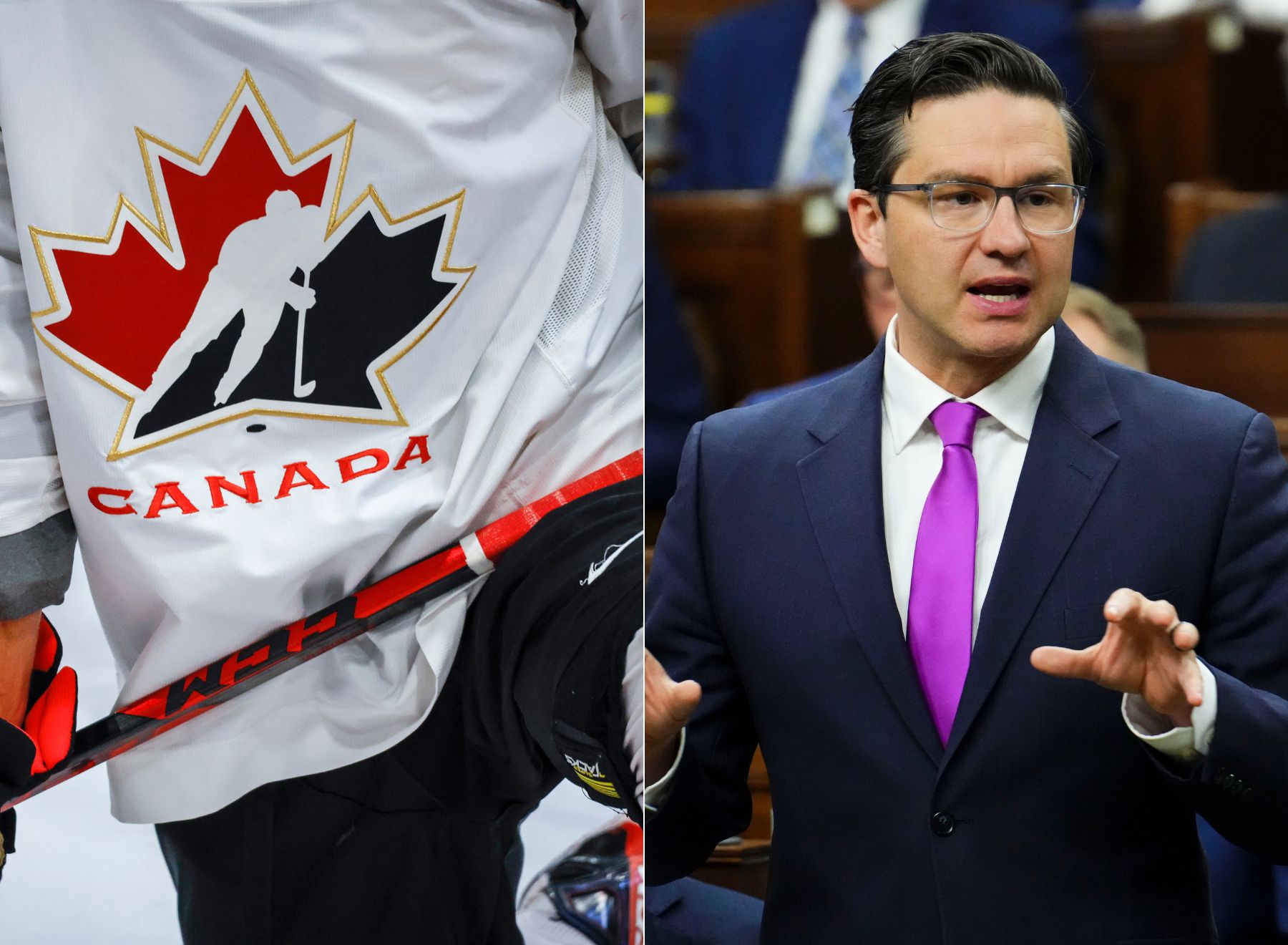This month marks the five-year anniversary of #MeToo. As someone who has spent the last 20 years working to end men’s violence against women, I have seen the conversation shift in powerful ways over the last few years. There are many reasons to feel hopeful.
But I also have many reasons to despair.
This month, a couple of high-profile cases of sexual violence and misogyny dominated Canadian news. The disastrous mismanagement of sexual violence at Hockey Canada unravelled further with the news that the organization had not one but three secret funds used to pay off alleged victims of sexual violence. And earlier, an explosive report from Global News found that Conservative leader Pierre Poilievre’s official YouTube videos were secretly tagged with a hashtag used by online misogynist groups.
I wish I could tell you it was a uniquely terrible few weeks, but we live in a country in which a woman is killed every 2.5 days and one in three women is sexually assaulted in their lifetime.
Those statistics are shocking because we are so unwilling to talk about it.
Canadians generally accept that violence against women happens – elsewhere. We are generous with international aid because we believe we’ve solved all our social ills so it’s time to spread the good word to the rest of the world. I tell people I work to end violence against women and they congratulate me. But when I say I do that work domestically, people turn away or make excuses to change the subject.
It’s why I think the Pierre Poilievre story is so quintessentially Canadian.
Rather than outright saying he was appealing to incels and misogynists, his team hid that appeal in metadata; less bat signal in the sky and more of a wink.
Poilievre clearly understands that Canadians frown at overt expressions of misogyny. But he also understands that misogynists are here, hiding below the surface. Poilievre is not just targeting a handful of disgruntled young men lurking online either. Canada is one of the worst countries in the world for online right-wing extremism. Canadian men are very active in hate spaces online, in some cases in higher numbers than the United States.
As a public educator who has spent her entire career working in violence prevention, I need us to start connecting the dots.
The leader of the opposition appealing to online misogynists connects to the Hockey Canada scandal. If we’re going to keep repeating that hockey is “Canada’s sport,” then we need to name how the misogyny in sport reflects us, too. Keep connecting the dots and it won’t surprise you that one of the world’s most vocal critics of feminism is homegrown talent Jordan Peterson.
More on Broadview:
- Here’s why Canada doesn’t need a new abortion law
- Why the Queen’s death is being discussed differently in the Global South
- Survivor of forgotten massacre by Ontario minister co-authors memoir
Canadians, this is who we are. And what makes it worse is that resisting violence can put us in the crosshairs of the very people we oppose.
In 2019, Jess Allen made a comment about sexism in hockey culture during a segment on The Social and she was met with so many death threats that she feared for her safety. This happened a full three years before Hockey Canada was outed for paying hush money to alleged victims.
We cannot solve a problem that we are not willing to name.
Canada might be the home of misogynist leaders but we are also the birthplace of the White Ribbon Campaign, the world’s largest movement to engage men to end violence against women and girls. Created after the Montreal Massacre in 1989 (another deadly example of misogyny in Canada), White Ribbon aims to create a world where women and girls live without violence.
This is who we can be if we have the courage to name misogyny when we see it and commit to condemning it in all its forms.
***
Julie S. Lalonde is a women’s rights advocate, public educator and media commentator based in Ottawa.
















The social problems that exist within Canada are often too complicated and complex to be solved properly in the name of justice. Canadians commit to giving international aid in the name of justice because the aid that is needed is more obvious and provides a connection to justice that can easily be determined. It is time we church people gave more than simple lipservice to justice. Many churches have programs where they donate to the poor, but most church people need to understand that there is more to poverty than financial need.
It’s amazing how violence against women is framed as a social crisis but violence against men is just considered “violence”. “A woman is killed every 2.5 days” – shocking! Male homicide victims outnumbered female homicide victims in Canada by a ratio of 3:1 in 2021.
Women suffer the majority of sexual and domestic violence and that’s a problem but men make up the overwhelming majority of all non-sexual forms of violence, including random violence. If anything, men should be the ones to pine about how afraid they are of walking alone at night.
Feminists should focus their efforts on things that disproportionately affect women, such as sexual violence and gender discrimination. Don’t try to turn every problem into a ‘woman’ problem. That’s just insensitive and arrogant.